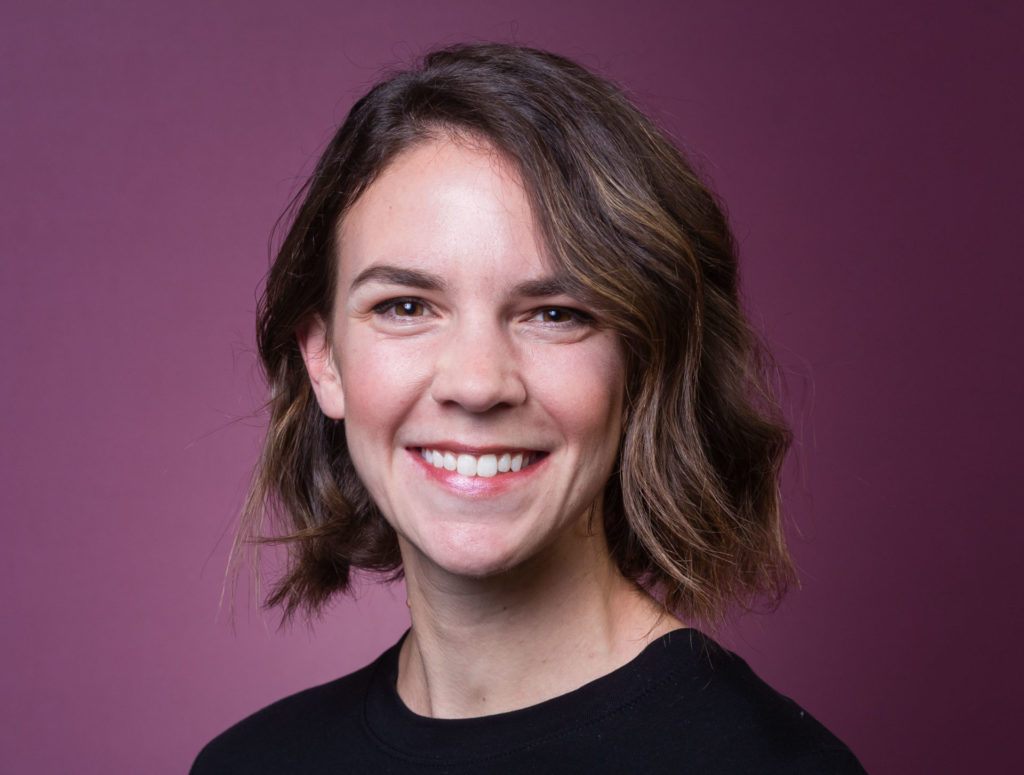StarterNoise’s Kenzi Enright talks to Emme founder Amanda French on unmet needs in women’s health—and how tech can help solve the problem.
For those who are not familiar, what is Emme?
Emme is a healthcare technology company focused on solving unmet needs in women’s health. I started the company three years ago out of the Stanford Biodesign fellowship, where I observed such a lack of innovation in the women’s healthcare sector overall. I heard from women over and over again about the stress of taking birth control pills.
I realized that missing the pill is such a common problem for women that leads to nearly 1 million unplanned pregnancies each in the US alone. It’s something I knew we could solve with technology.
Our first product is the Emme smart case. It is a first of its kind connected pill case, which tracks your pills for you and syncs with our custom app to send smart, relevant reminders and actually helps people remember to take the pill.

Image courtesy of Emme.
What is Emme’s mission, and what inspires you to achieve it?
Our mission overall is to put women’s health in women’s hands. And that mission is very much rooted in feminism, which is certainly influenced by my own background. I am a mechanical engineer by training and worked in the medical device industry on several different innovative products. But, I was almost always the only woman in the room.
Emme is working to put women in the driver’s seat of their own health experience with convenient digital tools that solve critical unmet needs.
Emme’s mission strikes a personal chord with me. As a young woman, I experienced incredibly painful cramps, and I was told that that was just “how it goes” with being a woman that has her period. It wasn’t until an emergency appendectomy where—by complete chance—the doctor removing my appendix also noticed that I had severe endometriosis. (EDITOR’S NOTE: endometriosis is a disorder in which tissue that usually grows inside the uterus grows on other organs).
I’d never even heard the word “endometriosis” until after learning it was something that was happening in my very own body. And as of now, there are no accessible ways to diagnose someone with endometriosis without performing surgery.
Contraceptive methods (along with surgeries), for me, have been the best way to manage pain. So much so that if I forget to take my birth control pill or if I take it late, there’s about a 95% chance I’ll be in pain the next day or two.
I don’t think many people realize the role that birth control plays in our holistic health.
There is so much opportunity for us to have a better standard of care and standard of life. To overcome that, it’s vital to help people see why we deserve better—why it’s not just a minor part of life to miss pills every month. And that’s very core to what we’re building at Emme.
We’re also approaching this through the lens of healthcare. We specifically chose to offer symptom/side effect tracking for symptoms, and side effects that we know are relevant to the experience of people with PCOS or endometriosis. It empowers you to say, “no, I know this is not the average experience.”
Right. Because there’s some—albeit unintentional—gaslighting in women’s healthcare.
Doctors frequently told me that what I was experiencing was “normal.” So, often I’d think to myself, “wow, I must have a ridiculously low threshold for pain because this is horrible.”
And I actually carried a lot of shame—period pain didn’t keep any of my other friends home from work or school, so it certainly shouldn’t keep me home. But many of my other friends didn’t have uterine tissue growing on any of their other organs.
Exactly. And unfortunately, that is why it takes so many years for some of these very common women’s health conditions to be diagnosed. We’re working so hard to use data and information to help improve that situation.
We want to support our users with the Emme community’s data to help patients advocate for themselves based on their own experience. Because it’s so common that women are simply sent away.
So Emme is also a tool for advocacy as well.
Absolutely. And advocacy is so important to Emme, both on the individual and the broader social and community levels.
We recently partnered with Planned Parenthood as part of their business for birth control initiative to clearly establish how crucial it is to have access to birth control. Every woman deserves access and coverage for the pill. It’s so important to work with groups like Planned Parenthood to advocate on a national and global level.
In August, Emme landed $2.5M in Seed Funding. How has your funding journey been?
We have been so fortunate to be working with some of the best investors. Fundraising is always an interesting journey—particularly as it relates to women’s health. It is unfortunately well-documented that there is a disproportionate lack of funding in the women’s health sector.
I do often have conversations with people who aren’t necessarily yet familiar with the needs or the size of the women’s health market. I think part of what helped me be so successful in fundraising is understanding where I am starting with each person–how do I make sure that they really understand the need and the market, especially if it’s relatively new to them?

In what ways has COVID-19 affected Emme?
During COVID, we’ve seen a dramatic increase in both the demand for birth control as well as sensitivity around family planning.
There is an established decrease for many women in the desire to get pregnant during this time. So access to contraception and the tools that can support the effective use of contraception is important more now than ever before.
The impact of COVID on our business has certainly been meaningful, and fortunately, we have been able to provide women with something they might not have had access to otherwise.
What else is in the pipeline for Emme?
So much! One of the fundamental keys to our innovation process is always connecting back with our customers and patients that we’re serving. Ever since the company was founded, I checked in with our users every week or every couple of weeks to understand what the critical unmet needs are.
While I can’t share too many specifics, I can say we do have some additional aspects of our products that we’ll launch in the coming months.
We’re very excited about building out additional offerings to be a comprehensive health tech company for women, especially one that facilitates remote and virtual care—really putting the patient’s needs at the center.
It feels like we are at the beginning in many ways because we’ve just launched, and it’s been so encouraging to see just how strongly the product is embraced and clearly how many people needed this and how many people were able to help.
I’m so excited for us to continue to build it out and have a tremendous impact on women’s health.
StarterNoise readers can use promo code EMMEPOWER15 for 15% off + Free Shipping.
Download the Emme app on iOS and Android, follow Emme on Instagram, Facebook, and LinkedIn, and follow Emme’s blog on Medium.
Follow Amanda French on LinkedIn and stay stick with us at StarterNoise to hear more inspiring stories like this one.
Like what you read? Hear more stories from founders like Noah Gray, CEO & Co-Founder of Onda, and John Sherwin, Co-Founder of Hydrant.



